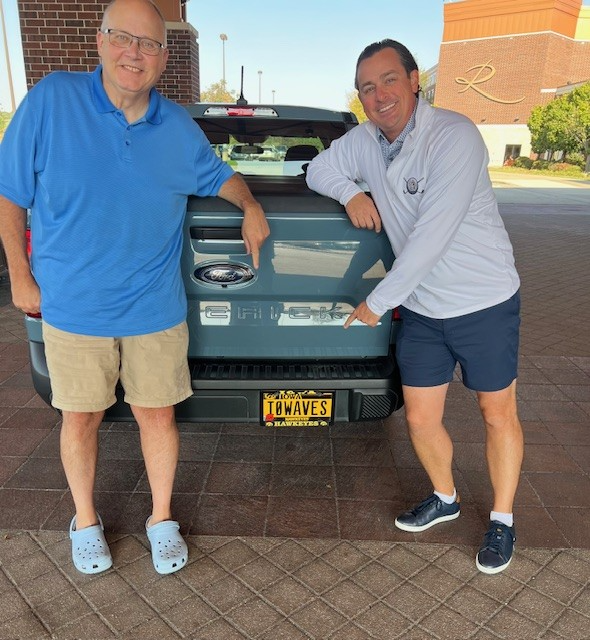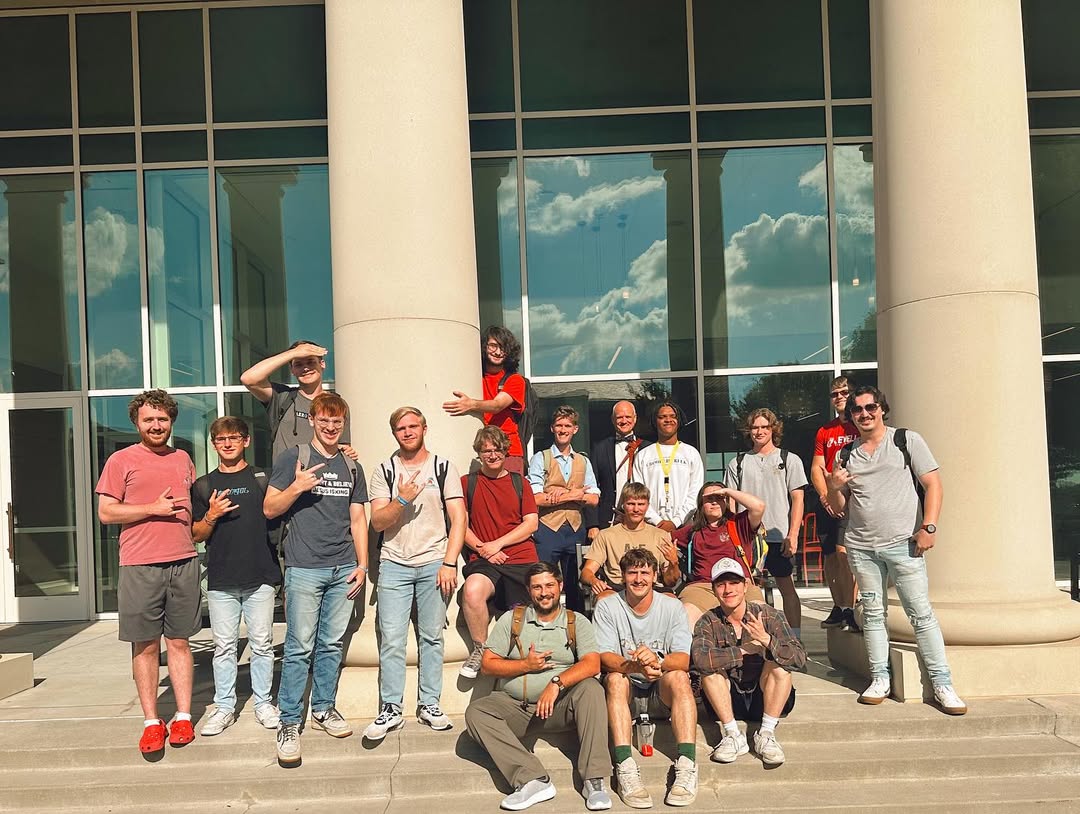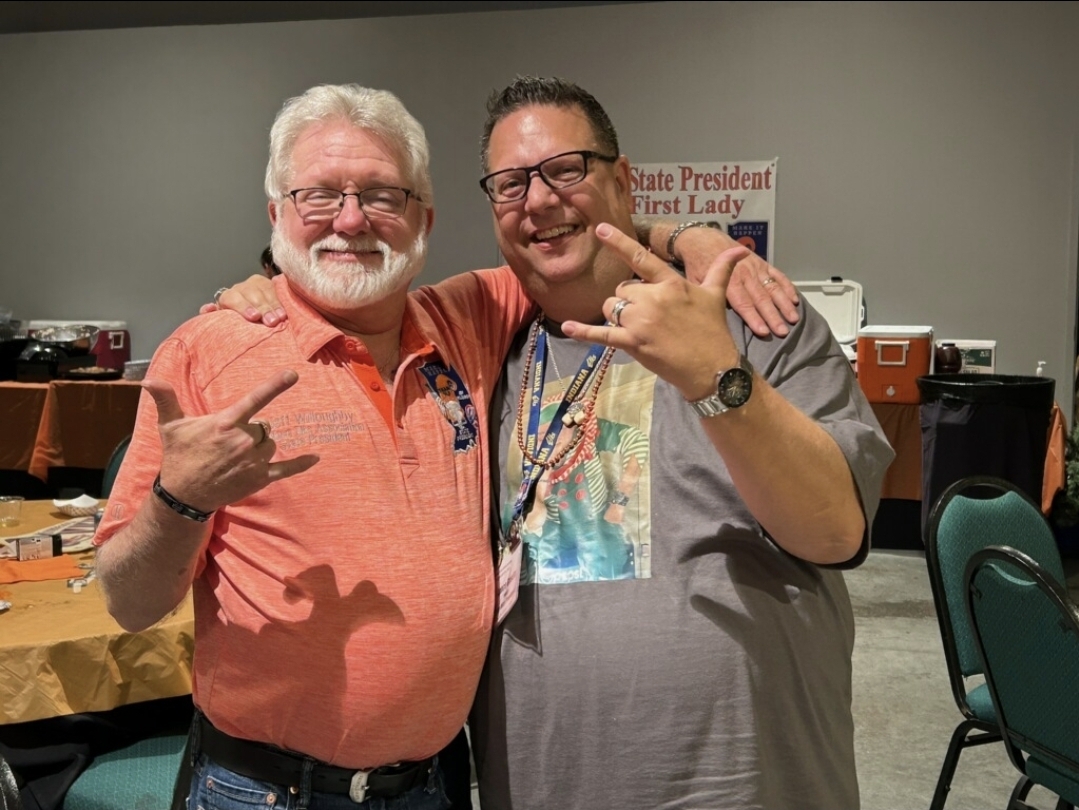Many factors influence the rise or fall of a Chapter, but strong leadership and steady mentorship often make the biggest difference. For the Brothers of Omicron-Alpha Zeta at Flagler College, those two elements became the driving force behind their remarkable growth.
Omicron-Alpha Zeta and Flagler College are unique. Flagler is a small, private school with a 75% female student body, and Lambda Chi Alpha is the only fraternity on campus. The Brothers weren’t recruiting from a large pool of men, and they also had to change the perception of fraternity life for both new and current students if they wanted their Chapter to survive.
By 2022, the Chapter was down to around eight Members. Tight knit, yes, but small and struggling. Without change, the Chapter risked fading out altogether.
At the same time, a transition of leadership provided new hope. When the Chapter’s previous High Pi stepped down, Bob Gerzel (Florida State, ‘83) accepted the role. His approach was deliberate—before making adjustments, he sat back and observed. He wanted to see how the Chapter functioned and what the Brothers truly needed.
“I’ve been a mentor over the last several years for different groups of young men,” Gerzel said. “I was very fortunate in my sales career to have three men who mentored me, and I always wanted to have the opportunity to give some of that back.”
Gerzel noticed quickly that disorganization held the Chapter back. What they needed was accountability and a strong leader to bring structure.
That’s when Tristan Hogan (Flagler, ‘26) entered the picture. Hogan, a non-traditional freshman and Army veteran, wasn’t looking to join a fraternity, much less lead one. But Brotherhood wasn’t unfamiliar to him, and when he connected with the Lambda Chi men, he saw something worth being a part of.
Building a Culture of Leadership
With Gerzel mentoring from the sidelines and Hogan leading as president, the Chapter began to rebuild. Hogan encouraged his Officers to examine their processes, asking them to critically think about why they did things a certain way. If an answer didn't make sense, they found a better approach.
“The definition of a leader is someone who gives purpose, motivation, direction, and the means for others to fulfill a common goal,” Hogan said. That belief shaped how he guided the Chapter and inspired those around him.
His influence was felt most strongly among peers like Myles Phillips (‘26) and Scott Schroeder (‘26), both of whom took on larger leadership roles during this period. For them, Hogan’s leadership created a turning point: either step up as accountable leaders themselves or let the Chapter stall.
Phillips gained confidence in communication and management. Schroeder grew to recognize the value of Brotherhood in shaping the Chapter’s future. He later reflected that Hogan helped the Brothers see what they had was special and that it could be even stronger.
That growth didn’t go unnoticed. In spring 2025, the Chapter was invited to run Florida State’s Initiation—a powerful full-circle moment for Gerzel, who had been initiated at Florida State himself. For the young Chapter, it was a huge milestone. It showed that their hard work and renewed sense of leadership had positioned them not just as passive bystanders in Lambda Chi Alpha, but as contributors to the Fraternity at large.
The Experience at Flagler
For the Brothers at Flagler, Lambda Chi became more than just numbers. It was the experience they shared together that set them apart.
“Looking from the outside, the Lambda Chi Brothers are always together,” Schroeder said. “They’re more than just a fraternity; they’re like a family.”
Myles agreed. To him, recruitment wasn’t about convincing anyone to join. “It’s not selling, it’s sharing,” he explained. “We want to show respect to everyone and, as a whole, we’re gentlemen. There are a lot of negative stereotypes about fraternity men, but Flagler Brothers want to break them.”
That perspective shaped how the Chapter approached campus life. When Hogan became president, one of the priorities was presence. The Brothers showed up everywhere—tabling events, campus activities, and college functions. They wanted students, faculty, and parents to see Lambda Chi in action.
Connection and Legacy
For Gerzel, what he saw in the Chapter was exactly what young men today are craving: connection.
“The new people or new Brothers are coming in looking for connection, because I know college students coming in post-COVID are looking for that,” he said. “That’s what they need.”
That sense of connection has fueled the Chapter’s renewal. Through consistent leadership, accountability, and the genuine bonds of Brotherhood, the men of Omicron-Alpha Zeta built a culture where Members want to stay engaged and contribute.
And the goal isn’t just survival—it's legacy.
“We want to make sure we leave this place better than when we found it, so when we come back to it, it’s better,” Gerzel said.
That vision is shared by mentor and Brothers alike andcontinues to guide Omicron-Alpha forward. Their story is one of perseverance, intentional leadership, and a commitment to Brotherhood that extends beyond college.



